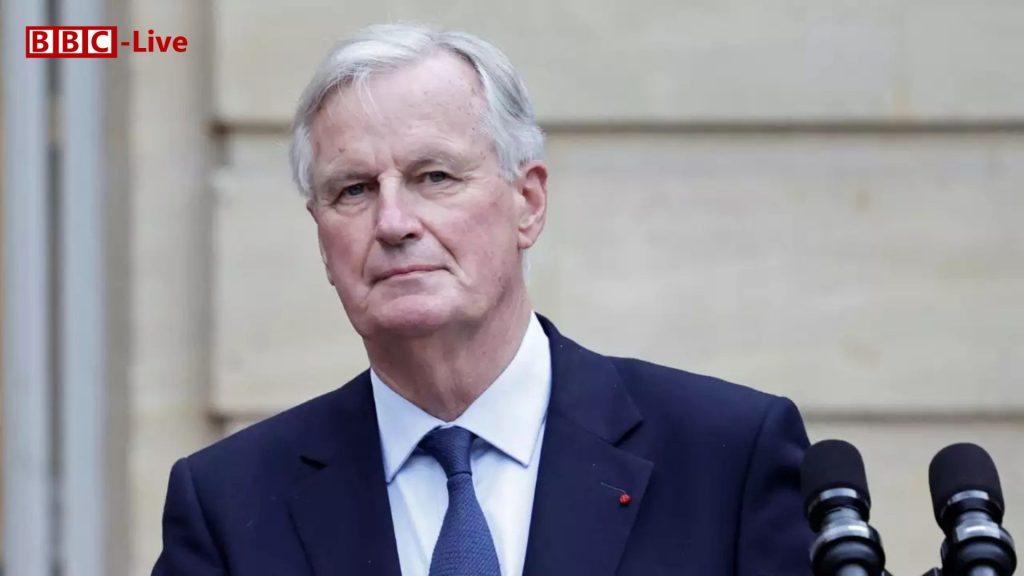
Turbulent Times for French Prime Minister Michel Barnier
Overview of the Current Political Climate
French Prime Minister Michel Barnier is facing a crucial moment in his political career. His government has just presented a controversial budget plan for 2025. This budget has sparked intense opposition from various political parties. As a result, Barnier’s position is precarious. He is nearing the possibility of being ousted from power.
Barnier was appointed by President Emmanuel Macron in September. This appointment followed a fragmented general election that left the parliament without a clear majority. Since then, Barnier has been governing without substantial support. He operates under the constant threat of a no-confidence vote. Such a vote could lead to his resignation and the collapse of his government.
Key Issues with the Budget Proposal
Central to the controversy is the government’s plan for social security financing. The proposal includes several contentious measures. These measures feature cuts in employer social contributions. There is also a partial reduction in how pensions are indexed to inflation. Lastly, the plan introduces a more restrictive approach to prescription drug reimbursements.
The far-right party, National Rally (RN), led by Marine Le Pen, has vocally criticized these measures. Their opposition is significant, as their stance will play a crucial role in any potential no-confidence motion. The RN is the largest party in the National Assembly, which has 577 seats. With over 140 deputies, they hold considerable power in the upcoming vote.
Potential Outcomes of the Budget Debate
If Barnier cannot secure enough parliamentary support for the budget, he may resort to Article 49.3 of the French Constitution. This article allows him to bypass a vote and push through the budget changes unilaterally. However, this course of action would likely provoke a no-confidence motion against him. If the motion occurs, Barnier’s survival will heavily depend on whether the RN decides to abstain from voting. He has little hope of finding support from the left-wing opposition parties.
Tensions are high, as a no-confidence vote could take place as soon as Wednesday. If Barnier’s government falls, it would be a historic event. It would mark the first successful no-confidence motion in France since 1962. That year, President Charles de Gaulle experienced a parliamentary defeat.
Government’s Reaction and Attempts at Compromise
Despite the mounting political pressure, Barnier and his government are expressing a willingness to negotiate. Government spokesperson Maud Bregeon stated that they are “open to dialogue.” They are seeking a compromise that could ease the situation. The government has already made some concessions. For instance, they scrapped a planned increase in electricity taxes. However, opposition parties continue to push for more changes.
On the right side of the political spectrum, the 2025 budget has received partial approval from the Senate, which has a right-wing majority. This indicates some support for the budget. However, the left-wing opposition, including the Socialist Party, strongly opposes the proposed measures. The left warns that using Article 49.3 would leave them with “no other choice” but to vote against the government. This warning further complicates Barnier’s position.
Concerns About National Debt
The Socialist Party has raised alarms regarding the potential fiscal impact of the budget proposal. They argue that the government’s fall could increase risks for France’s national debt. This debt has already reached critical levels. Thus, the opposition sees this situation as dangerous.
Goals for Fiscal Responsibility
Despite the ongoing turbulence, Barnier remains focused on his primary goal. He aims to reduce France’s public sector deficit. His target is to trim €60 billion from the budget. Barnier hopes to lower the deficit to 5% of GDP by 2025. Currently, the deficit stands at 6.1%. Achieving this goal is of utmost importance to him.
Navigating a Political Minefield
The pressure is mounting for Barnier. He must navigate a complex political landscape while ensuring his budget plan addresses France’s financial challenges. At the same time, it is crucial that his government maintains stability. Political uncertainty looms over France as Barnier grapples with these challenges. His ability to secure his job and implement his fiscal agenda hangs in the balance.




